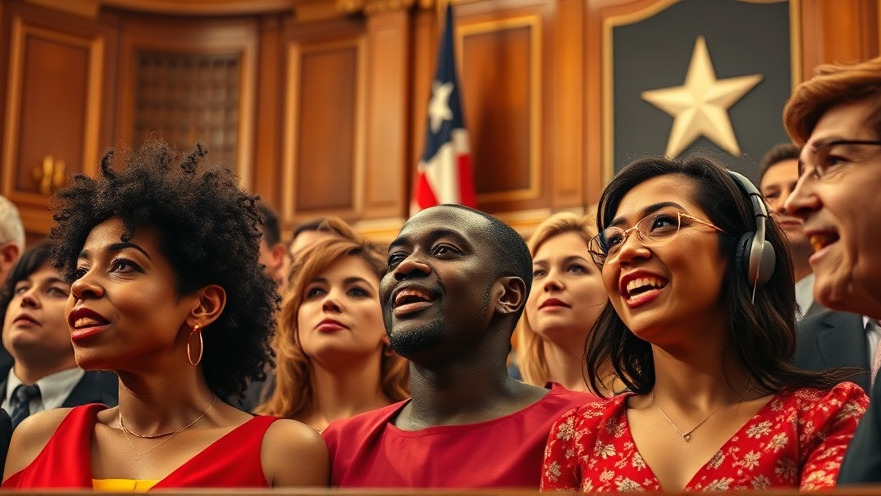
Examining the Implications of Free Speech in Higher Education
In Texas, the formation of two legislative committees to study free speech and bias on college campuses follows the tragic killing of Charlie Kirk, a Christian conservative activist. As discussions on First Amendment rights heat up, the focus has turned to how universities can balance the need for open discourse with the outrage following Kirk's death.
Why Charlie Kirk's Death Matters in the Context of Higher Education
Charlie Kirk was a controversial figure who often sparked debate with his direct political talks at college events. His assassination at Utah Valley University has not only shocked the nation but has raised critical questions about freedom of expression within academic environments. In response, Texas officials are tightening scrutiny over faculty statements and student activism, igniting concerns among educators and students alike about censorship and academic freedom.
Understanding the Political Fallout in Texas
According to House Speaker Dustin Burrows, the national reaction to Kirk’s assassination exposed a troubling issue within higher education—namely, the calls for accountability among faculty criticized for their comments related to Kirk. There have already been severe consequences; some educators have lost their positions after controversial remarks, thrusting this issue into the limelight as part of a broader political agenda.
Community and Student Reactions to Faculty Accountability
The formation of these committees has divided public opinion, particularly among students. The incident at the University of North Texas, where a student accused classmates of celebrating Kirk's death, serves as a poignant example of the charged atmosphere on campus. Critics argue that punitive actions against faculty can lead to a chilling effect, where educators may hesitate to express their views for fear of repercussion.
Challenges Facing Educators in the Wake of Legislative Scrutiny
As Texas universities grapple with their reputations in the aftermath of Kirk’s murder, faculty members face increased pressure regarding their teaching methods and the content of their courses. Recent firings of professors at Texas A&M and Texas State University illustrate the apprehension educators feel—could their opinions adversely affect their careers?
Looking Forward: The Future of Free Speech in Texas Universities
As these committees convene, the implications will be significant. The conversations initiated here could dictate the future of free speech policies in Texas universities, ultimately affecting how future generations perceive and engage with controversial topics. As this narrative unfolds, the Texas education system will likely serve as a litmus test for academic freedom across the nation.
Actions for Texas Residents: Understanding Your Role
As Texas residents and students, it is crucial to engage with these developments actively. Staying informed about the narratives surrounding free speech and political discourse is vital. Attend town hall meetings, participate in discussions around academic policies, and hold elected officials accountable for their stances on these pressing issues.
While this topic is contentious, open dialogue is necessary to resolve misunderstandings and promote intellectual growth. The future of free speech in education is critical, and how it is handled now will shape discourse in America for years to come.
 Add Element
Add Element  Add Row
Add Row 



Write A Comment